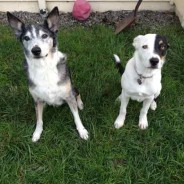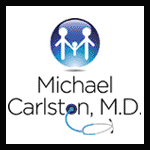
In 1989 one of the top medical journals in the world, LANCET, published a commentary called “Sniffer dogs in the melanoma clinic”. Dogs, with their remarkable sense of smell, appeared able to identify patients who had a certain kind of skin cancer, one that can be deadly. I am pretty confident that just about anyone who has ever undergone any sort of medical test, even a simple blood test, would prefer getting sniffed by a dog.
Even cooler than the simplicity and lack of harm (dog saliva is probably the worst threat) is the reality that all of our testing methods are imperfect. They miss cancers. At the other end of the spectrum, medical testing too frequently indicates the presence of a cancer that just is not there. All in all, doggie sniff testing is a very interesting possibility.
Like so many simple, inexpensive and potentially effective methods, those in medicine, or at least those putting out the money for research, are generally disinterested. With cancer, a potentially life-threatening disease, in question, testing is essential. Would you be willing to make a decision about receiving or refusing radiation, chemotherapy or surgery based upon whether a dog likes how you smell? I bet you would, or at least enter it into your considerations, if you knew that a trained dog’s opinion was reliable.
What other evidence is there? A study here in the SF Bay Area took five “ordinary household dogs” and, in a matter of weeks, trained them to differentiate breath samples of people with breast or lung cancer
from other people without cancer. They then exposed the dogs to 86 patients with lung or breast cancer as well as 83 healthy individuals.
It was particularly interesting that the stage of cancer did not change the accuracy of the dogs. Early cancer identification can increase survival chances for some people. Some of the dogs missed one lung cancer patient, the rest identified every one. Some of the dogs selected one person as having cancer, who did not. Among the patients with breast cancer, the dogs performed almost as well, missing a few patients but only a couple of the dogs “over-diagnosed” even one.
Other studies have found similar success in doggie diagnosis of lung cancer, colorectal cancer, ovarian cancer and prostate cancer. The studies have used breath, sweat, stool or urine samples. Dogs have been shown to identify bladder cancer by sniffing urine, although their success rate is lower.
One hypothesis suggests that the odor dogs are sensing is created by a substance produced by many different kinds of cancers afflicting humans. It seems unlikely that there is one scent characterizing all (or even many cancers). However, if that is true, then this fact might also suggest that a treatment focusing on that aspect of human/cancer biology might benefit many patients with different kinds of cancers. Even if the impact was limited to only a few kinds of cancer, it is well worth further investigation.
Doggie diagnosis is not limited to cancer. A Dutch study of 300 patients found that a 2 year old beagle was able to pick out a serious infection (c. difficile) in EVERY patient who had it (30 of the 300). No lab test is that good.
The published studies on doggie diagnosis have been single trials, conducted in various locations all over the world. That is mostly because these studies have been conducted by some group with a personal interest but no finding. The University of Pennsylvania, with modest grant support to their Working Dog Center in the School of Veterinary Medicine, is becoming a center of investigation. That is good news to all of us.
